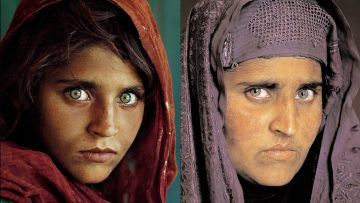Sanam Maher at the TLS:

Much has been said about the burqa’s ability to conceal. In 2006, speaking to Reuters, the then Prime Minister of Italy Romano Prodi insisted, “You must be seen. This is common sense, I think. It is important for our society”. In Britain that same year, Muslims accounted for only 3 per cent of the population, and the number of burqa wearers was a fraction of that. When Jack Straw, as leader of the House of Commons, wrote, in a column for the Lancashire Telegraph, that he asked Muslim women to take off their coverings in meetings because “so many of the judgments we all make about other people come from seeing their faces”, the Prime Minister, Tony Blair, chimed in with support. “It is a mark of separation”, and it makes non-Muslims “feel uncomfortable”. The Shadow Home Secretary David Davis went further: by insisting on such practices, Muslims were enacting “voluntary apartheid”. In 2011 France became the first European country to make it illegal to wear a face-covering veil in public. The country is home to an estimated 5 million Muslims (the largest Muslim population in western Europe), and it has long been suggested that reactions to the veil mask deeper concerns about the growing minority.
The veil, face-covering or otherwise, has become a central component in the Western understanding of Muslim women – and, indeed, men.
more here.
